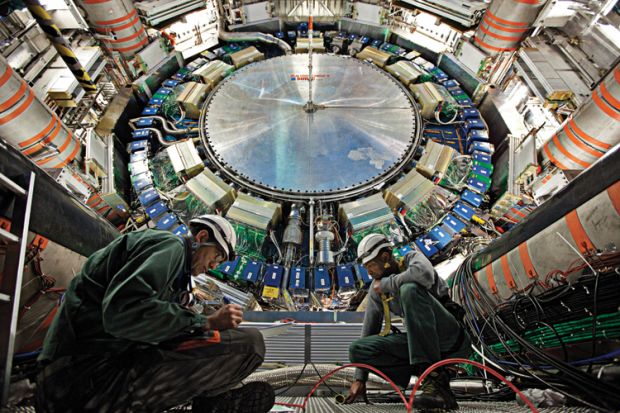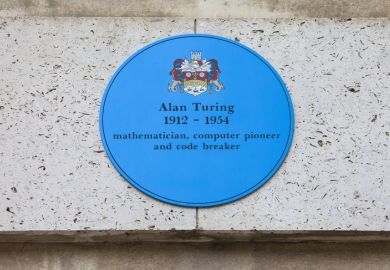Source: Cern
Mountains of data: the Atlas experiment may generate more new physics
Some might regard taking over the running of one of the experiments that revealed the existence of the Higgs boson particle as akin to pushing the dustcart after the Lord Mayor’s show.
But not Dave Charlton. The professor of particle physics at the University of Birmingham described the coming consolidation period at Cern, the European Organization for Nuclear Research, as “extremely exciting and interesting”.
Professor Charlton took up the role of “spokesperson”, or scientific leader, of the Atlas experiment at Cern’s Large Hadron Collider on 1 March, having been voted into the role by the project’s 177 member institutions last July, at the height of media hysteria over the discovery of the “God particle”.
Professor Charlton, who was deputy spokesperson at the time of the “seminar” announcing the discovery (fronted by his predecessor, Fabiola Gianotti), said his key task at the helm would be to achieve consensus, since all 3,000 physicists involved in the collaboration “basically have an equal say” in how the project is conducted.
Such diplomacy will remain crucial even though the Atlas experiment was recently shut down until the end of 2014 - by which time Professor Charlton’s two-year term (which may be renewed) will be nearing its end.
Priorities for the upgrade of the detector still have to be set, and any problems they meet need to be solved.
The continuing analysis of data gathered during Atlas’ triumphant first run also needs to be optimised across the collaboration’s 100,000 global computers.
“We would be very lucky to have something as big as the Higgs come out of the latest data but it is still possible there will be more new physics,” he said.
Professor Charlton will also be busy planning “substantial” future Atlas upgrades ahead of experiments in 2020 at much higher intensities. This will require frequent discussions with Atlas funders.
And although officials and politicians might question why more spending is needed if the “missing link” of the standard model of physics has already been discovered, Professor Charlton is primed with a response: “It is unclear what else the Higgs is telling us about theories beyond the standard model.
“There is a huge potential to explore that with the upgrades.”
Register to continue
Why register?
- Registration is free and only takes a moment
- Once registered, you can read 3 articles a month
- Sign up for our newsletter
Subscribe
Or subscribe for unlimited access to:
- Unlimited access to news, views, insights & reviews
- Digital editions
- Digital access to THE’s university and college rankings analysis
Already registered or a current subscriber? Login




